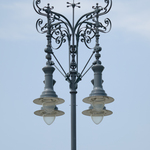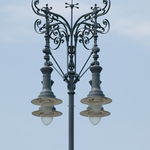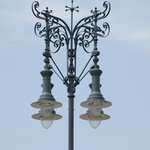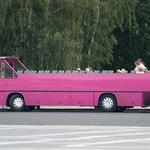Lens finder
Olympus Zuiko Digital ED 150mm f/2.0
No Ultrasonic AFLenses with ultrasonic focusing mechanism tend to be quiter and faster than traditionally focusing lenses. No stepping motor AFLenses with stepping motor focusing mechanism are better for contrast based focusing, and are quiter and faster than traditionally focusing lenses. One or more Low Dispersion lens element is usedLow Dispersion lens elements help to reduce chromatic aberration. Not stabilizedImage stabilization helps to reduce blur caused by hand shake, especially at high focal length or in low light situations. Image stabilization can give 1 to 3 stop advantage over none stabilized lens, based on the reciprocal rule. Metal mountCheaper lenses are usually equipped with plastic mount, while more expensive, professional lenses have metal mount. In general, metal mounts are more durable, and a good thing to have when lenses are changed a lot. When a camera is used mainly with one lens, the material of the lens mount is not that important. Internal FocusingInternally focusing lenses don't change their size while setting focus. The front lens is fixedThe fixed front lens is not rotating during zoom and/or focusing. This allows the photographer to use petal shaped lens hood. Fixed front lenses also make the use of polarization filters a lot easier. Weather SealedWeather sealed lenses are protected from dust and water. While they are not water proof, these lenses can be used in rain and other humid environments. Some sealings only provide protection against dust or water, not both. Sealing is only available when the lens is used on a similarly weather sealed camera body. No drop-in filter supportDrop-in filters are used in those lenses where either the front lens is too large, or the field of view doesn't permit the use of traditional filters at the front of the lens. Usually bright tele and ultra-wide angle lenses support this filter type. |
|
|
High performance with high portability. Wherever you go, from the fields of sport to the wilds of nature to fashion runways, you can be assured of superior image quality, even in low light. Both ED and Super ED lens elements produce outstanding sharpness and color.
|
Olympus Zuiko Digital ED 150mm f/2.0 Specification
| Available mount(s) | FourThirds |
| Application(s) | Sports, Wildlife |
| Category(s) | Super telephoto |
| Multiplier | 2× |
| Stabilizer | no |
| Focal length | 150 mm (prime) |
| Lens construction | 11 elements in 9 groups |
| Angle of view |
35mm: N/A digital: 8.2° |
| Number of blades | 9 |
| Maximum aperture | f/2 |
| Minimum aperture | f/22 |
| Minimum focusing distance | 140 cm |
| Magnification | 0.13× |
| Filter size | 82 mm |
| Size | ∅ 100 × 150 mm |
| Weight | 1610 g |
| Notes |
Weight: with tripod adapter |
| AF speed | 0.7 sec. (from close up to infinity) |
| AF sound | |
| Internal focusing | yes |
| Internal zoom | N/A |
| Fix front lens | yes |
| Mount type | metal |
| Weather sealed | yes |
| Drop in filter | no |
| Ultrasonic AF | no |
| Stepping motor AF | no |
| APS-C sized circle | N/A |
| Low dispersion lens element | yes |
| Hard case | N/A |
| Soft case | LHC-1220 (included) |
| Lens hood |
LH-89 (included) printable lens hood |
| Tripod adapter | N/A |
| Discontinued | yes |
Olympus Zuiko Digital ED 150mm f/2.0 Reviews
Other reviews
- Olympus Zuiko Digital ED 150mm f/2.0 review at pixinfo.com (Hungarian)
Olympus Zuiko Digital ED 150mm f/2.0 in the news
- Tamron SP AF60mm f/2.0 Di-II Macro
- Nikkor AF-S DX 85mm f/3.5G ED Micro
- Carl Zeiss Distagon T* 35mm f/2.0 ZF
- Sony SAL2875 28-75mm f/2.8 SAM
- Carl Zeiss Distagon T* 28mm f/2 with EF mount
- Tamron SP AF17-50mm f/2.8 XR Di II VC LD Aspherical
- Carl Zeiss Distagon T* 2,8/21 for EF mount
- Carl Zeiss Distagon T* 3,5/18 ZE
- SIGMA 70-300mm F4-5.6 DG OS
- Nikkor AF-S 16-35mm f/4 G ED VR

































